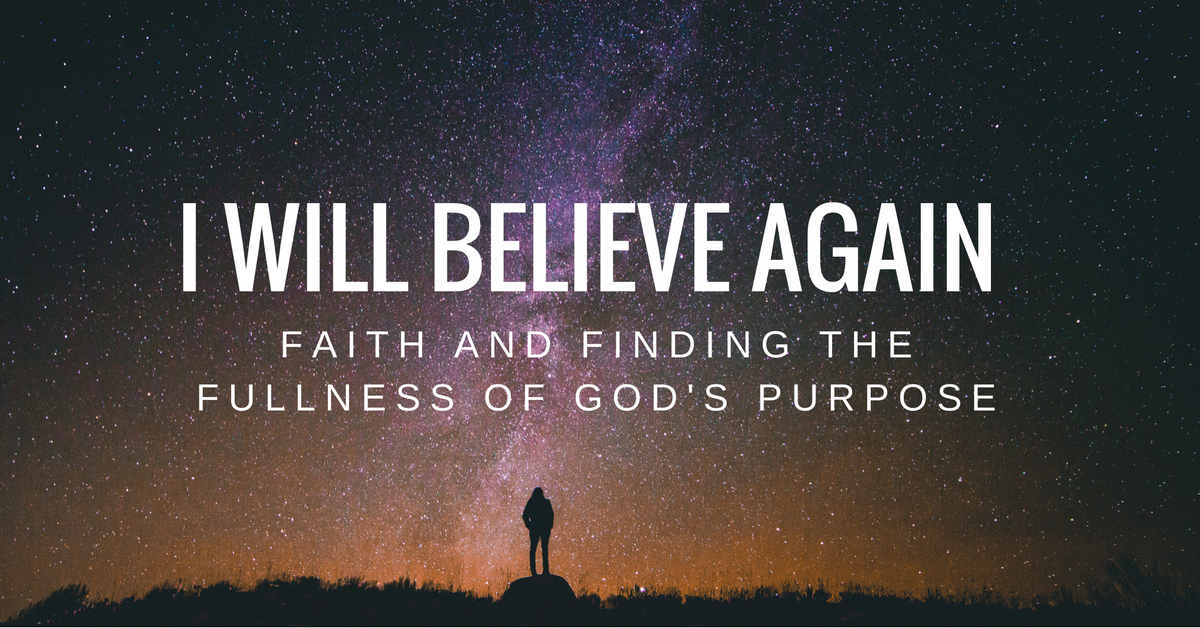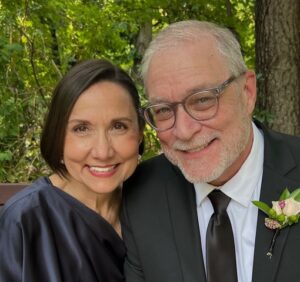by David Delp | Sep 27, 2016 | Spiritual Life
 Outcomes are not my responsibility. I am at a men’s “prayer summit” this week and I will post a few thoughts from the “summit.” This is some quick hits of things I’m thinking about this week. It is important to pull back from routine regularly and calibrate.
Outcomes are not my responsibility. I am at a men’s “prayer summit” this week and I will post a few thoughts from the “summit.” This is some quick hits of things I’m thinking about this week. It is important to pull back from routine regularly and calibrate.
This thought has come to me consistently and almost continuously over the past 24 hours, “The outcomes are not my responsibility.” The perfectionist in me wants to qualify that statement. Yes, I take responsibility for my decisions and actions, but there is so much in life I cannot control. Fear keeps me from starting, but starting is my chief responsibility. I cannot control ultimate outcomes. I can only trust that if I do the right things the right things will happen.
I always thought that if I was “good enough” and if I worked hard enough, I could keep my family safe, healthy, provided for, and we could live the life I envisioned in my head. It is my responsibility to see the vision, to start the journey, be faithful to what I hear in my heart, take action, etc., etc., but the end result is not the object, the object is day to day obedience, trust, and action. There are simply a lot of things along the way I cannot control.
Am I to take LESS action? Am I to sit passively and just LET life happen? No, I will be a man of action. I will be a starter. I will dream dreams and see visions and I will pursue them with faith and courage. But when the circumstances of life make it impossible to ZIG, I will ZAG.
[shareable]When the circumstances of life make it impossible to ZIG, I will ZAG.[/shareable]
Ok, typical of the way I think… here are three action points to help us do this:
First, Hear
My mission in life is to listen to the heartbeat of the Father and to write, speak, and do what I hear. I take the time to listen and I am committed to following the paths I believe God is leading me on. Meditation, prayer, journaling are important. Every successful person I’ve ever met has a quiet time in their daily routine to think. I use my quiet time to listen. Pacing and shouting during your prayer time is a good thing, I do it more often than you’d think, but I find that what God has to say is always more important than what I have to say. I need to listen.
Second, Trust
When I listen, and I hear, I then must trust what I’m hearing. This is cultivated. I must position myself that the outcomes are not my responsibility, but acting upon what I hear is my responsibility. If I fail to START because the end result is not guaranteed, then I will never start. I have to trust God to orchestrate the end result.
But, its not enough that I trust God… I have to trust God in me. I have to trust my relationship and my ability to hear clearly. Sometimes I get it right, sometimes I get it wrong, but I must have the COURAGE to go forward on what I sincerely believe is right. Even if I am wrong, if I proceed with a pure and sincere heart (Psalm 25), God is still able to orchestrate the right outcome.
[shareable]It is not enough to trust God… I must trust God in me.[/shareable]
Third, Act
Pull the trigger. Take action. Don’t try to do, do. If I sit around trying to clarify everything I will never take action. There is a time for waiting, a time for being certain, a time for testing the waters, a time for thinking, a time for caution, a time for observation… But, for-crying-out-loud, make a decision to pull the trigger and get on with it. You have to trust enough to get on with it.
Hey, a lot of this is self-talk. I struggle with this every day of my life.
I am emboldened when I realize the outcomes are not my responsibility. Taking action and doing what I know to do is my responsibility. I cannot foresee the unexpected. I don’t know how long I will live. I don’t know how long my loved ones will live. I do not know when tragedy will strike (again). I cannot control governments, the economy, politics, or evil people. I can control my obedience and the actions I take.
I will do my best to (1) clearly listen, then I will (2) trust myself enough to act, and then (3) I will trust God to bring about HIS outcome.
by David Delp | Sep 26, 2016 | Grief & Disappointment, Spiritual Life, Uncategorized

One of the keys to loving the “twists” in life is embracing their divine nature. Besides, most of the good things in life come from the “twists” in life’s road.
Deo Volente,” it is a Latin phrase meaning “God willing.” A century ago, it was common to include the initials D.V. at the bottom of a letter or invitation. The initials qualified the contents of the letter, indicating plans based upon and subservient to God’s will (James 4).
My Granny was a wiry old woman. In the middle of the Great Depression, at the age of 35, with no means of supporting herself and her four children, she buried my granddad who died in an accident as a West Virginia coal miner. They were married 17 years. She never remarried, probably never even thought about it.
To my recollection, Granny never stated her future intention, be it about going to the grocery store, sweeping the floor, or preparing a meal, without adding the phrase, “Lord willing I am going to….” “Lord willing, I’m going to make a banana pudding.” I was always certain the banana pudding was God’s will! As an ignorant theology student in college, I sometimes said to her, “Granny, it is not necessary to add ‘Lord willing’ to every statement, God doesn’t care if you make a pudding.” She was never deterred.
Now I get it.
Walking through life’s difficulties, there are days I’d like to chat with Granny. I would like to hear from her in my present context of understanding. I’d like to know what God taught her as a young mother, alone in the middle of the Great Depression. Granny somehow learned to resign herself to the will of her God and, with all of her heart and sincerity, to faithfully trust. And it was proven, her trust was not misplaced.
Now, my friends sometimes chide me for saying, “Lord willing.” They sometimes jokingly add, “and if the creek don’t rise.” I don’t care so much about rising creeks, but I do want to acknowledge God’s rightful prerogative to intervene in my plans. Sometimes I add “DV” to the bottom of communications. Deo Volente, if God wills it.
Here are five thoughts about embracing the will of God:
Boldly Pursue Life
Don’t just sit around and wait for the “will of God” to hit you in the face. Use the gifts, insights, and discernment God has given you to boldly pursue the divine future you see. Sincerely acknowledge “Deo Volente,” because reality often ends up different than imagined, but have confidence that God’s progression will bring you to a good place. Otherwise our inactivity bring paralysis.
Allow for Variances
When things turn out contrary to the way you imagined, embrace “Deo Volente”. When things turn out contrary to your plans, if I have not allowed for variances, if I have not allowed for “Deo Volente,” you will get body-slammed. Denial is a normal part of grief, and it takes many forms, but we eventually realize denial does not change reality.
Embrace the Twists
When you lay plans, acknowledge “Deo Volente.” Oddly enough, when you acknowledge such from the outset, it is easier to recognize and joyfully embrace twists in your road. The greatest joys come from the “twists.” Twists may be devastating, but more often, they are incredible blessings.
[shareable]The greatest joys come from the ‘twists’ in our journey. Twists may be devastating, but more often, they are incredible blessings.[/shareable]
Acknowledge Present Reality
Why do some Christians think it a lack of faith to acknowledge present reality? God is bigger than our reality, he can change present reality, but reality is still reality. Responsibly face the things that are. Faith speaks into existence things that are not. Speak to the desired reality while acknowledging present reality. Prayer is seeking God’s will on earth as it is in heaven (Matthew 6).
[shareable]God is bigger than our reality, he can change present reality, but reality is still reality.[/shareable]
Joyfully Desire God’s Will
I say, “Lord willing,” “Deo Volente,” “DV,” because if I make a stupid or uninformed plan, I WANT God to intervene and help me discover a better path. It takes trust, self-denial, and a bit of “crucifixion,” but His plan is always better in the end. I want God’s path, even when it looks like a path I’d rather not take.
Such is the faith taught me by a wiry little West Virginia woman who weighed less than 100 pounds, always wore her hair in a tight bun on the back of her head, who navigated losses and disappointments that I have only begun to understand.
Deo Volente. God willing.
by David Delp | Sep 12, 2016 | Spiritual Life, Uncategorized
 Donna and I have both had to walk through a rebuilding of our faith. Our former definition of faith was something like, “believing that God will do anything you direct him to do because you are his favorite person.” Ummm… not exactly… The Scriptures are always quite clear that we are to be seekers of God’s will and not ours—because His plan is better, even when it looks like his plan stinks!
Donna and I have both had to walk through a rebuilding of our faith. Our former definition of faith was something like, “believing that God will do anything you direct him to do because you are his favorite person.” Ummm… not exactly… The Scriptures are always quite clear that we are to be seekers of God’s will and not ours—because His plan is better, even when it looks like his plan stinks!
This isn’t a theological discussion, it is about our lives and the way we’ve grown to be at peace with something that we cannot fully understand. God is who he is, he is “I AM.” We, as the creation and not the creator, do not have the prerogative to create God in our own image, but it is ours to open our lives up to him that we may know him, as much as God is knowable, for who he is.
Some believe faith is based solely on the statement of scripture. Our experiences must be discounted in favor of scripture. If scripture says God performs miracles, then he does whether or not we ever actually see a miracle.
Others say faith is experientially based. While honoring scripture as our “all sufficient rule for faith and conduct,” our experience proves God’s miraculous ability. A person with a testimony is more influential than someone with merely an intellectual argument. A weakness of experiential thinking comes when our experiences do not jibe with our belief or knowledge. When we believe that God can perform a miracle, say… a healing, and he does not, then our experience informs us that God does not perform miracles.
Some others say that God performs miracles according to our faith, and when we ask without result the “fault” lies with us because we were not faithful enough, prayerful enough, or good enough. We didn’t pray the right way.
Yep, Donna and I have waded through all of that stuff. We’ve been on a journey of rediscovery and trust. As a result, our faith has grown to previously unknown levels. Now, rather than basing my faith on my own strength, ability, intellect, knowledge, understanding, wisdom, education, etc., my faith is based upon a simple trust in God, as it should have been all along.
I have come to think of faith on four practical levels.
Level One Faith: A Belief that God CAN Do the Miraculous
Both Donna and I grappled with faith questions as we navigated the disappointment of grief. I never deeply doubted that God could do anything, but I wasn’t sure he WOULD do the miraculous. A level one faith questions whether or not God is active on this earth. We observe pain and suffering in this world and we pose temporal explanations for the seemingly miraculous. We believe God can, but will he?
Level Two Faith: A Belief that God DOES do the Miraculous
The testimony of Scripture, the testimony of people we trust, and our own personal observations and recollections reinforce that God does do mighty things. At level two, a doubt remains as to whether or not God will move on our behalf, because we may not deserve it, but God does do miraculous things.
Level Three Faith: A Belief that God will do the Miraculous In and For Me
This has been a journey of trust. I do not know why God chooses to release his power to miraculously heal a dying person in one instance and withholds the power in another instance. I can think of a hundred reasons why he might, but I choose to make it simple—I choose to walk faithfully with God and trust him. A level three faith brings me to the place of daring to believe that not only can God do great things, and not only does he do great things, but he does great things in my life. We will not understand everything, but God is motivated by love toward us.
This third level of faith requires trust. What I see or don’t see may trouble me, but when I place my trust in God, my perspectives change and my faith stabilizes.
Level Four Faith: A Belief that God will do the Miraculous Through Me
God and I are still working on the perfecting of a level four faith in me. A level four faith is NOT about seeking the miraculous, it is about being the miraculous. It is about being an instrument in God’s hands and participating in the simple yet miraculous transformation in the world around us.
Level four faith is living in the belief that God accepts me; he actually likes me, even when I do not. He is gracious and merciful. Discovery of a level four faith opens huge doors of opportunity, because it is only when I believe, truly believe that not only will God do great things, he calls us to participate in his divine nature (2 Peter 1:4). A level four faith requires obedient trust in God.
Donna and I want you to know that when you are shaken you don’t have to be destroyed. God really does work through the tough stuff to prove himself faithful. When you’re feeling beat up, challenged, hurt, or disillusioned, dare to believe that when we trust and grow in our faith we discover that…
… God CAN do mighty things,
… God DOES do mighty things,
… God will do mighty things in your life,
… and God will do mighty things through your life so you can realize his purpose and plan for your life.
 Outcomes are not my responsibility. I am at a men’s “prayer summit” this week and I will post a few thoughts from the “summit.” This is some quick hits of things I’m thinking about this week. It is important to pull back from routine regularly and calibrate.
Outcomes are not my responsibility. I am at a men’s “prayer summit” this week and I will post a few thoughts from the “summit.” This is some quick hits of things I’m thinking about this week. It is important to pull back from routine regularly and calibrate.

 Donna and I have both had to walk through a rebuilding of our faith. Our former definition of faith was something like, “believing that God will do anything you direct him to do because you are his favorite person.” Ummm… not exactly… The Scriptures are always quite clear that we are to be seekers of God’s will and not ours—because His plan is better, even when it looks like his plan stinks!
Donna and I have both had to walk through a rebuilding of our faith. Our former definition of faith was something like, “believing that God will do anything you direct him to do because you are his favorite person.” Ummm… not exactly… The Scriptures are always quite clear that we are to be seekers of God’s will and not ours—because His plan is better, even when it looks like his plan stinks!